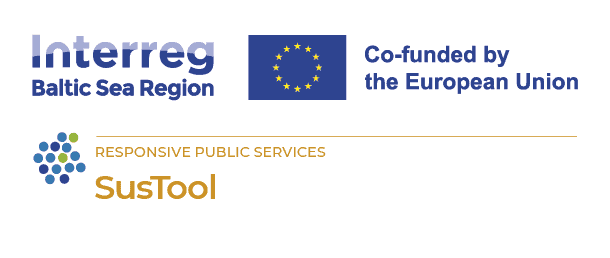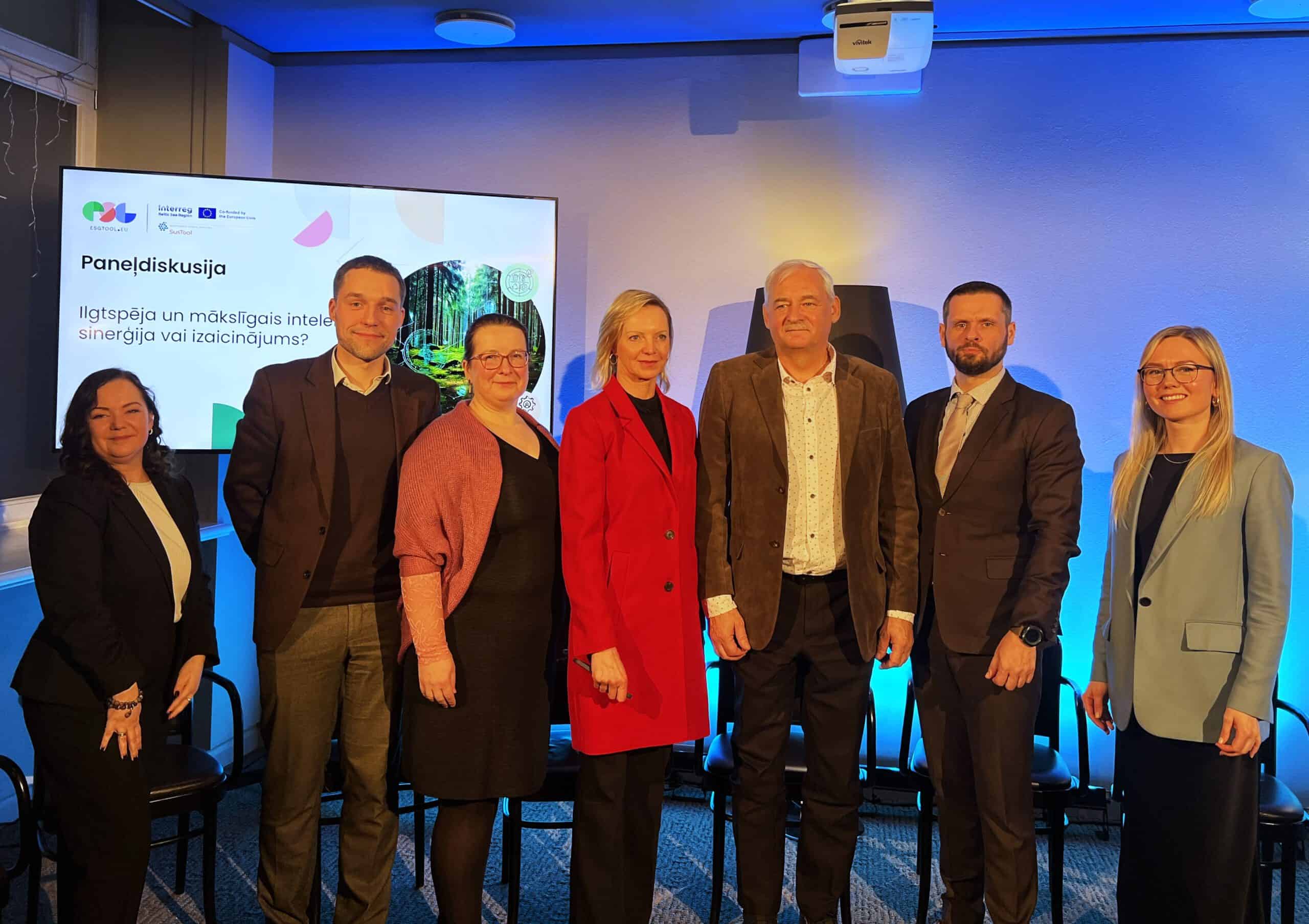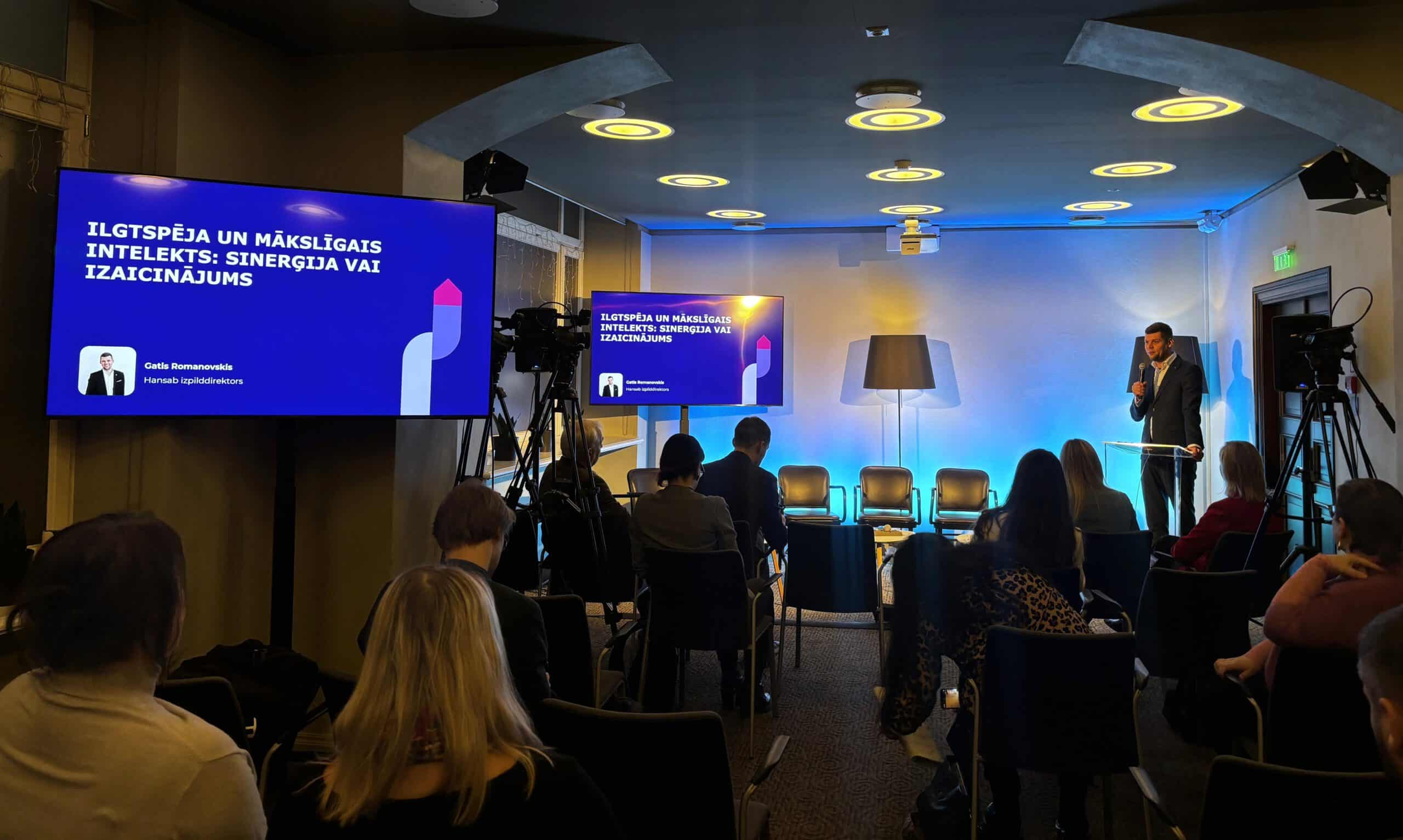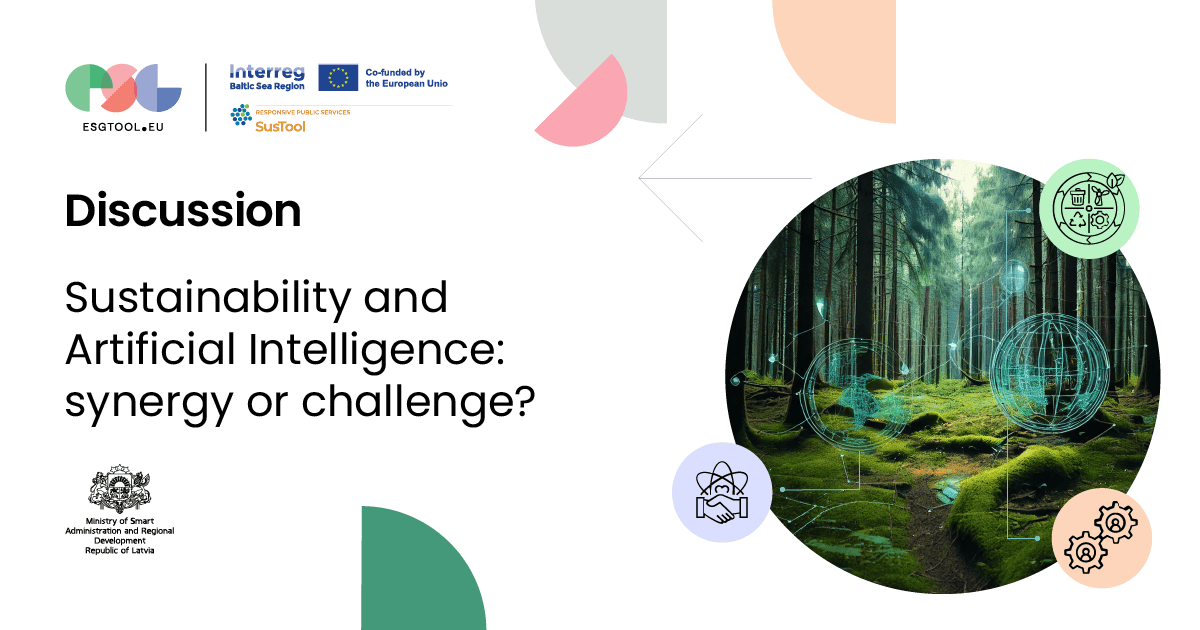
Synergy or challenge: Latvia debates AI’s impact on sustainability development
11 February 2025
On 23 January 2025, the Ministry of Smart Administration and Regional Development (VARAM) of Latvia organized the panel discussion “Sustainability and artificial intelligence: synergy or challenge?”.
Various industry professionals and experts from the sustainability field, public and private sectors, academia, and the AI association participated in the discussion:
- Agnese Alksne-Bensone, CSR Latvia
- Aija Timofejeva, The Ministry of Climate and Energy (KEM)
- Arvils Kupris, Latvian Association of Artificial Intelligence (MILA)
- Gatis Ozols, The Ministry of Smart Administration and Regional Development (VARAM)
- Laila Līduma, The Electronic Communications Office of Latvia
- Modris Greitāns, The Institute of Electronics and Computer Sciences (EDI)
The discussion was moderated by Agate Ambulte.
Experts discussed how the public sector and businesses can use Artificial Intelligence (AI) to promote sustainable development and how digital tools can assist not only with implementing the green transition but also with daily tasks in both the private and public sectors. Participants were actively involved in the discussions, arguing their views from the perspective of their field. The result was a series of insights into how AI and sustainability interact with each other.
VARAM Deputy State Secretary for Digital Transformation Gatis Ozols expressed that the public sector is researching and trying to find ways to become more sustainable with the help of investments – for example, by gradually evolving data centers to be greener.
Gatis Ozols emphasized that VARAM, together with partners, is working on a project that will help companies take their first steps toward sustainability and understand which sustainability aspects and standards are relevant to them. Not all of these apply to every company, and it is crucial to help them, especially SMEs, understand where to begin and what kind of information they need to gather.
At the end of the debates, Agate gathered the experts’ thoughts:
- What are the practical applications of AI in the sustainability sector? We can see and analyze where we are spending energy, identify what data is available, analyze it, and aggregate it using various AI tools.
- AI helps optimize business operations, for example, by replacing monotonous tasks and in employee training, saving human resources and redirecting them to other tasks, thereby focusing on resource conservation.
- To begin the path towards sustainability, several key questions must be asked: What, How, When? It is necessary to assess which AI tools best meet the specific needs, as they too require careful selection. One AI tool cannot solve all problems.
- Mutual communication is the key to shared development and creating a path forward.
- AI tools can help standardize the various interpretations of sustainability terms.
In the end, Agate expressed her thoughts that we need to be louder, discuss this topic more, and communicate with each other about it increasingly.
EDI Director and leading researcher Modris Greitāns shared his insight: “A sustainable country is one where natural intelligence surpasses artificial intelligence.”
The discussion is available on VARAM Latvia’s YouTube account and is conducted in Latvian: https://youtu.be/slYc6maGuf0?feature=shared
Project manager
Santa Bileskalne
Ministry of Smart Administration and Regional Development of the Republic of Latvia
+37167026551
santa.bileskalne@varam.gov.lv








